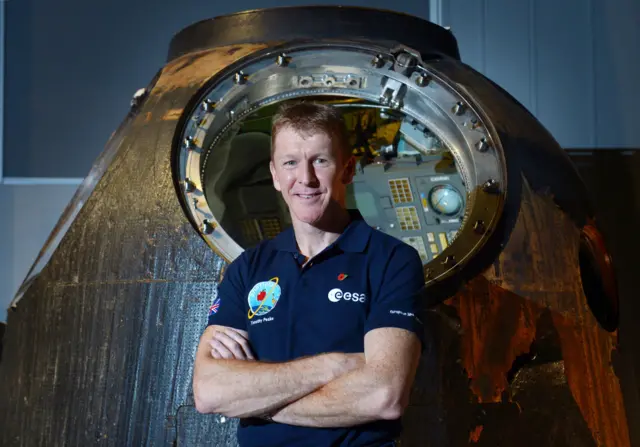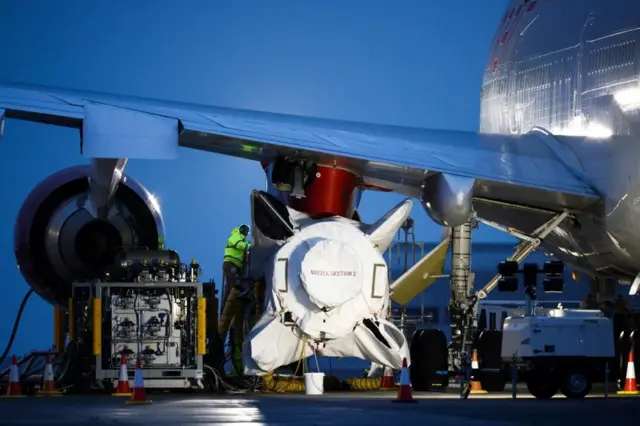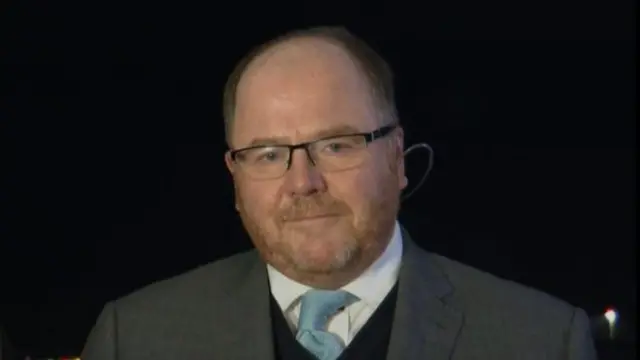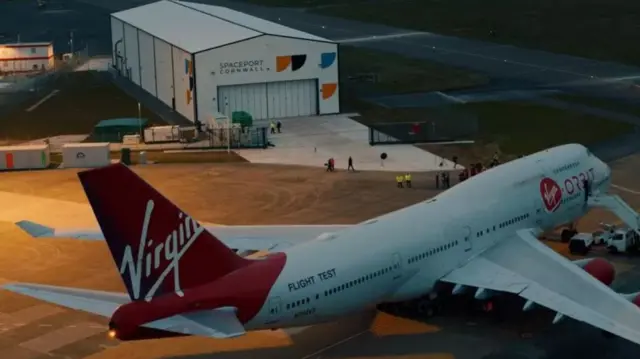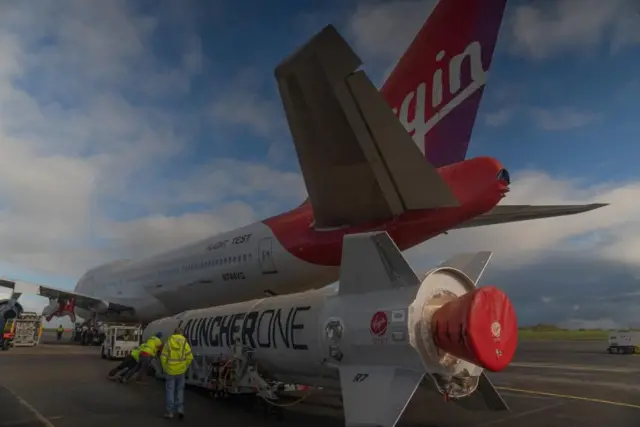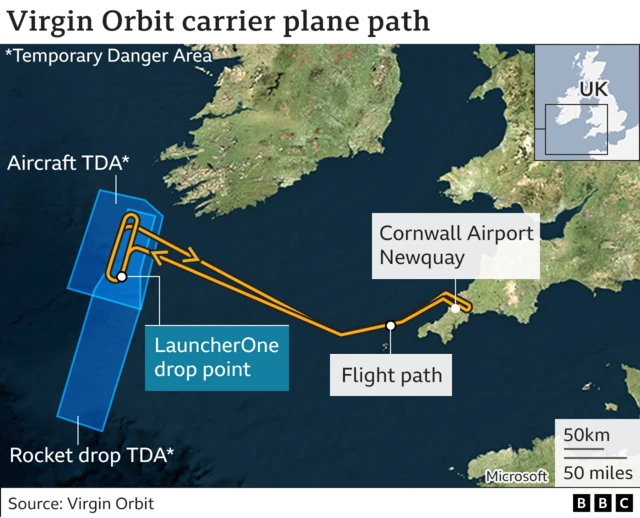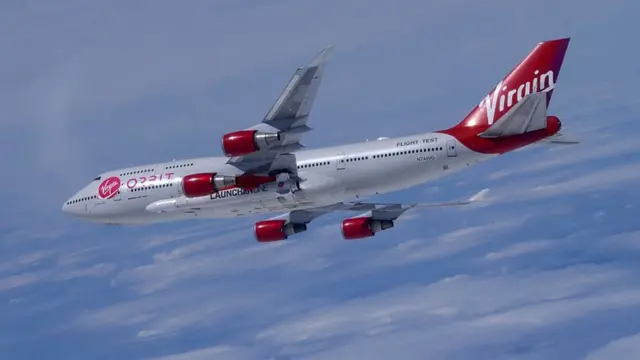Excitement building at Newquay Airportpublished at 20:50 GMT 9 January 2023
 Rebecca Morelle
Rebecca Morelle
Science editor at Spaceport Cornwall
The excitement at Newquay Airport is building.
It’s not every day crowds gather to watch a plane take off.
But this is a flight with a difference, and 2,000 people have come to Spaceport Cornwall to watch.
There are food trucks, a “merch stand” - and a silent disco. It’s like a festival here - albeit one that’s very dark and pretty cold.
One family we spoke to described this as a once in a lifetime opportunity - and a massive deal for the local area. They said they were here to watch UK space history being made.
